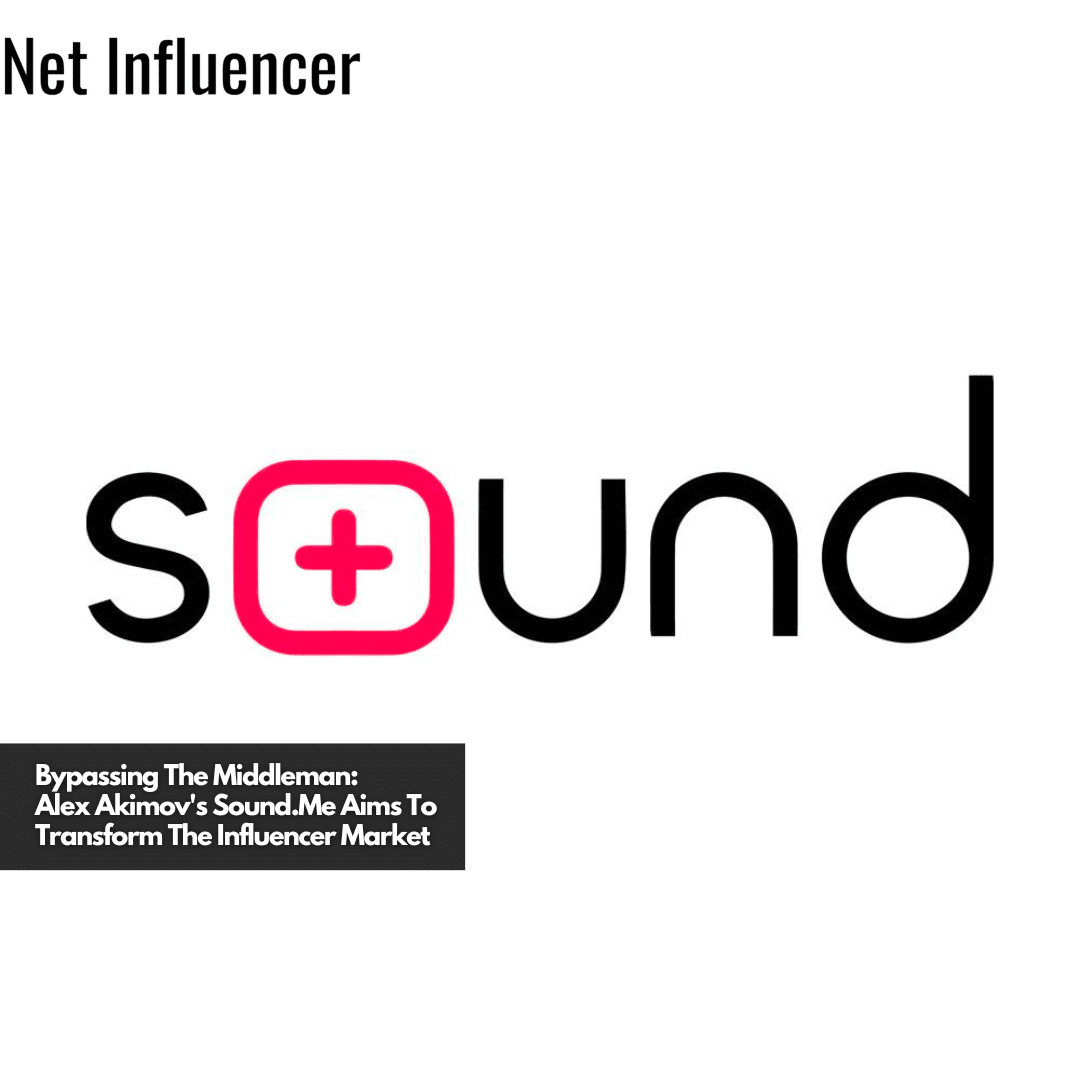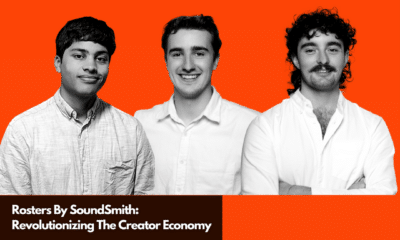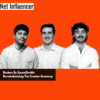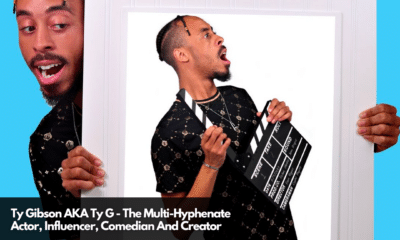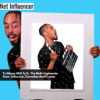Technology
Bypassing The Middleman: Alex Akimov’s Sound.Me Aims To Transform The Influencer Market
Sound.me is a digital platform that operates within the creator economy. Designed with AI integration, its primary function is to serve as a marketplace where creators can find opportunities that align with their skills and interests. Instead of navigating through traditional agencies, Sound.me connects creators directly with those looking to collaborate, simplifying the process and eliminating lengthy negotiations. The platform caters to a wide range of creators, whether they have large followings or are just starting out. By removing intermediaries and emphasizing straightforward interactions, Sound.me seeks to foster direct, efficient connections in the digital content space.

“I like to think of Sound.me as the Uber for influencers,” Alex started, his enthusiasm evident. “In the vast ocean of the creator marketplace, Sound.me emerges as a beacon. It’s AI-enabled, determining the true value of creators for the software. In essence, it establishes how much they earn.”
This might prompt one to ask, how does this differ from the traditional agencies that have been around for years? “If you look at the big agencies, those signing high-end influencers and spending substantial sums on them, they are fantastic. But they operate on a different scale. Imagine them as the luxury helicopter services, while we’re more akin to Uber or Lyft,” Alex elucidated. “Our strength? We’re rooted in the small creators, the everyday individuals. People like you and me, who have built a modest but engaged following. They are the ones talking about products, sharing songs, and driving promotions.”
Bypassing The Middleman: Alex Akimov’s Sound.Me Aims To Transform The Influencer Market
The Genesis of Sound.me: Bridging the Gap in Digital Marketing
Alex’s journey into the digital space was driven by his past. “Coming from a background in music promotion, my other venture, Simple Social, focused on digital marketing around artists. This led me into the domain of TikTok creators.” However, the experience was far from smooth sailing.
“The pain point was real,” Alex recollected. “Approaching agencies, I would propose my budget and then wait for them to return with offers. But it was never straightforward. Either they would come back with a list of influencers who were unsure of when they’d post or there’d be this cumbersome back and forth about the creators not being in the mood to post. The lag was real. Before I knew it, two to three weeks would have passed.”
A thought began to blossom in Alex’s mind, “Why the middleman? If they couldn’t ensure efficiency, why not connect directly with the creators?” This birthed Sound.me’s foundational philosophy – simplicity. “This is the campaign. Take it or leave it,” Alex articulated. By eliminating negotiations and the inherent complexities, Sound.me streamlined the process, offering immediacy that agencies often lacked.
Revolutionizing the Process
Sound.me’s game-changing approach can be summarized in one word: disruption. “We’ve obliterated the traditional negotiation process,” Alex said, a hint of pride in his voice. “Previously, there was this constant haggle about compensation. Creators might hold out for more, eventually leading to them not posting at all. We’ve bypassed all that.”
With a robust community nearing a million creators globally, Sound.me doesn’t solely rely on any single creator. “Our platform simply progresses to the next willing creator if one doesn’t engage. The result? We engage a broader audience, faster than any agency can,” Alex explained.
“As of now, we operate on a selective approach to campaigns,” Akimov began, emphasizing the need for a more personalized touch. “We’re currently private, managing campaigns directly from our central office. It’s not that we’re trying to create barriers, but the sheer volume of interest from creators means we need to handle things hands-on.”
He continued, painting a vivid picture of the platform’s initial strategy. “At one point, we thought of giving clients direct access to our pool of creators. However, that didn’t pan out as planned.” It’s easy to see why. A single campaign saw an influx of 20,000 creators expressing interest. Such vast numbers, though a testament to the platform’s popularity, resulted in a logistical conundrum. Clients, unprepared for such a deluge, found themselves swamped, unable to efficiently sort through the influx.
“We had clients attempting to tackle the selection process, even deploying interns,” Akimov remarked with a rueful smile. “But without a deeper understanding and care for the selection process, things went haywire. TikTok creators, waiting in anticipation for campaign participation, were left in the dark. This mismanagement led to frustration and confusion on both ends.”
Learning from these experiences, Sound.me has since implemented a more streamlined approach. “We’ve designed a system that’s built to manage the volume,” he shared. Their application, which has earned acclaim by trending multiple times on the Apple Store’s entertainment section, is at the heart of this system. “With our app, along with text message notifications and emails, we can quickly alert creators of available campaigns. And, if they fit the targeted demographic, they can choose to participate or move on.”
Diving deeper, Akimov shed light on the data-driven backbone of Sound.me. “We’re not collecting data in a superficial manner. We strive to understand who our creators are.” Their system captures essential details – location, follower count, engagement metrics, gender, age, and more. This isn’t mere data hoarding; it’s an innovative step to make digital advertising more nuanced. Instead of operating as a traditional agency, Sound.me leverages these insights to match creators with the right campaigns.
“It’s revolutionary,” Akimov reflected. “We’re not just throwing out a wide net and hoping for the best. We can zero in on specifics. Want to target moms in the U.S., aged between 19 and 34? Our system can make that happen.”
The intersection of digital advertising and the creator economy is where Sound.me is pioneering its path. “We’re utilizing human creativity, but with the precision of digital targeting. That’s where the real disruption is,” Akimov stated.
Leveling the Playing Field in Creator Compensation
“At its core, our model is pretty straightforward,” Alex begins. “Think of it like an advertising bid system. The client determines the campaign specifics: the content they want, the complexity, and how much they value that content.”
For instance, a campaign could be as simple as asking a creator to smile at the camera or as intricate as a series of steps. Based on these requirements, the platform sets a maximum and minimum payout. “Say, the ceiling is $100 and the floor is $10,” Alex explains. “The creator knows upfront they’ll earn anywhere between these figures. But here’s the twist—it’s not a flat rate.”
Performance is the driving factor. A creator could potentially earn close to the maximum amount, but that’s contingent on how well their content performs. “It’s a system that rewards quality,” Alex adds. “If a creator, let’s call him Alex, is projected to earn $55.20 for a campaign but the content underperforms, then the payout gets adjusted downwards.”
This dynamic model offers another profound advantage—it fosters growth. The platform isn’t exclusive. Creators, irrespective of their follower count, can join. While not everyone might get campaigns immediately, the system constantly evaluates their metrics. Those showing promising growth and engagement start receiving more campaign opportunities. Conversely, if a creator’s metrics decline, they see fewer campaigns.
“In essence, we’re ensuring two things,” Alex sums up. “Firstly, compensation is merit-based. It’s not about how popular you are, but how impactful your content is. Secondly, we’re continually encouraging growth. A small creator today could be a top performer tomorrow.”
The Role of Data on the Sound.me Platform
Our analytics engine is designed to ensure we’re capturing a holistic picture of each creator.”
When it comes to evaluating a creator, the process is multifaceted. “We don’t just skim the surface,” Alex explains. “From posting frequency, content type, follower count, to engagement metrics like likes, shares, comments, and views – we factor in everything.”
Continuous monitoring is crucial. If a creator is only posting once a month, they might not be deemed as engaging or consistent. “Consistency is key,” Alex emphasizes. “An infrequent posting schedule could lead to less engagement, pushing the creator into a different category.”
The system is also astute enough to identify potential red flags. “If someone’s posting 20 times a day, it raises eyebrows,” Alex points out. “Such frequency could be an indication of spammy behavior, and we’re cautious about that.”
It’s this intricate, multi-layered approach that ensures a fair valuation of a creator. “We’re in the business of ensuring quality over quantity,” Alex says. “Our analytics engine helps pinpoint creators who are genuine, engaging, and resonate with audiences. This way, we can determine appropriate compensation and categorize them effectively.”
Breaking music, going from local markets to global markets
“The U.S. might be the coveted market for fame, but several successful records begin their journey outside of it,” Alex remarks. This geographical transition, he believes, is integral for an artist or record to attain global recognition. Records that have originated in diverse regions—be it the Philippines, Australia, or the UK—have all tasted success on Sound.me’s platform. But what’s the driving force behind this shift?
“It all boils down to storytelling,” Alex explains. Before venturing into any market, it’s crucial to understand its narrative and potential. Often, artists come with preconceived notions of their target audience. “You can’t pin where your song will resonate the most,” Alex muses. A record might become a sensation in the Philippines, gradually spilling over to neighboring regions, and eventually making waves in the U.S. Such spillovers, he says, are fueled by conversations, travels, and the inherent human tendency to share what resonates with them. The presence of a success story from another region then makes it easier to approach the U.S. market—a space where, as Alex candidly puts it, “no one cares until everybody cares.”
The next frontier for artists and creators is understanding the landscapes that could potentially embrace their work. This is where Sound.me’s technological prowess steps in. “It’s all about social listening,” Alex asserts. By analyzing where and how conversations around similar artists are taking place, they can pinpoint potential markets. It’s a strategy of associating the unknown with the known, of linking an emerging artist to established names like Ariana Grande or Ed Sheeran, and then mapping out where these stalwarts are making waves.
Yet, it’s not just about the global perspective. Alex’s passion visibly peaks when discussing hyper-local campaigns. He recounts an anecdote of a Halloween-themed song. To optimize its reach, they targeted ads to theme park attendees—a crowd that predominantly spends its waiting time on phones. The strategy? “Target them when they’re most receptive, during those long wait times.” This exemplifies the brilliance of geo-targeted campaigns, where precision meets opportunity.
Looking ahead, Sound.me is preparing to amplify its geo-targeting feature, potentially reaching hundreds of thousands in the U.S. alone. This will empower artists and brands to focus their campaigns on hyper-specific audiences. “Whether it’s a pop-up shop in New Jersey or a concert in New York, geo-targeting lets us create a localized buzz,” Alex says. The strategy, in essence, blends digital advertising with human relatability.
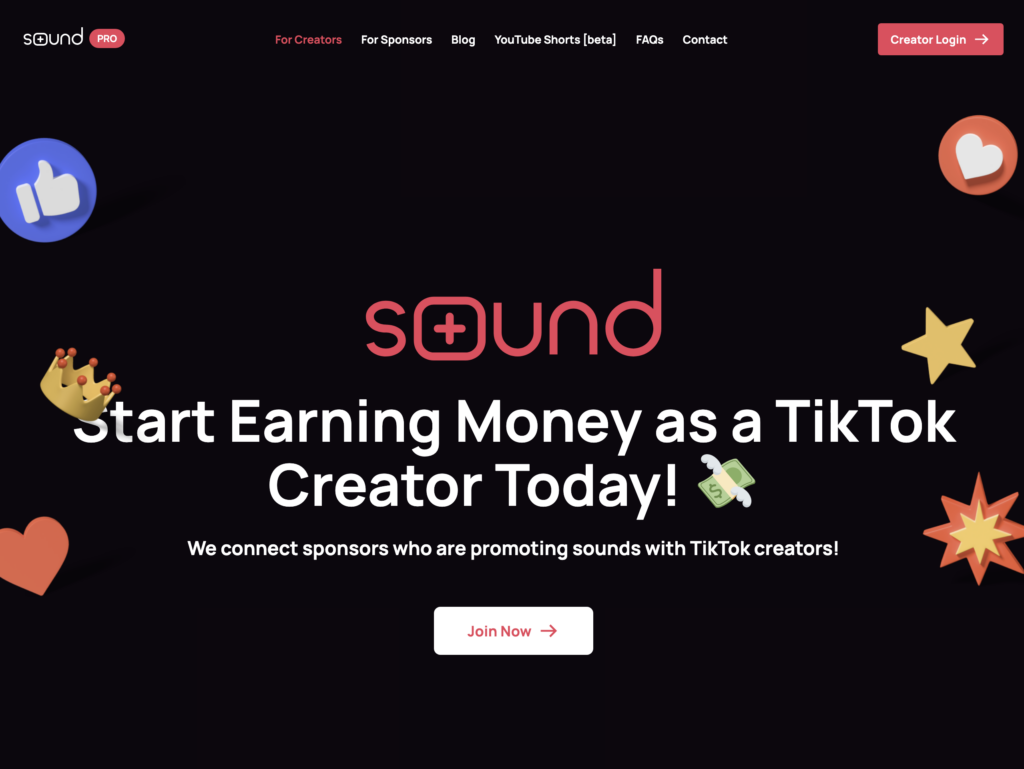
Predictions for the future of the creator economy
“I genuinely believe the creator economy is on the brink of a massive evolution,” Akimov began. “We’re likely looking at a finite timeline – perhaps five to seven years – where ads will hold the sway they currently do. The onset of newer, more immersive technologies is imminent, and with it comes a palpable weariness for advertisements.”
He brings up a point that resonates with many: the ubiquity of ads. “There’s a growing sentiment of exhaustion among consumers. Everywhere they look, there’s an ad vying for their attention. It’s led to a craving for genuine interactions, for genuine recommendations, and this is where creators shine.”
Akimov’s vision of the future is one where the creator economy doesn’t just exist but dominates. And in this landscape, brands and creators forge a new kind of relationship – one that thrives on transparency. “Imagine a world where brands align with creators not for sugarcoated endorsements but for unfiltered feedback. This is the direction we’re headed,” he predicts.
Elaborating on his personal experience, he recounted, “I’ve occasionally received brand offers on my YouTube channel, which I primarily use for playlists. It’s amusing because it indicates a lack of research on their part. Why approach someone who isn’t aligned with your product?”
But it’s here that Akimov highlighted an intriguing possibility. “If a brand sends me a product, say a microphone, and it falls short, I’ll say so. There’s a notion that payments from brands equate to positive reviews. But the true potential lies in facilitating honest ones. If a brand says, ‘Here’s our product, give us your candid thoughts,’ that’s game-changing.”
Akimov’s perspective offers a refreshing take in a world where brand endorsements can often seem inauthentic. The crux of his argument is that the creator economy, buoyed by trust and authenticity, is poised to reshape how brands engage with their audiences.
“For the creator economy to realize its full potential,” Akimov concludes, “brands need to embrace honesty as their north star. When a creator’s review isn’t driven by obligation but by their genuine experience, that’s when you foster an environment of trust. And in today’s digital age, trust is the most valuable currency.”
What’s next for Sound.me
“We are in the process of unveiling a new application designed for sponsors,” began Akimov. “The concept is to streamline the experience for them. They’ll be able to initiate a campaign in just three simple steps. This is just our initial version, aiming to gauge market reactions.”
The rapid rise of platforms like TikTok raises questions about the sustainability of such innovations. Akimov addressed these concerns by emphasizing Sound.me’s flexibility. “There’s always a ‘what if’ with platforms. What if TikTok wanes in its influence? Our strength is our user base. With over a million individuals eager to contribute, share their opinions, and earn from their efforts, we’re platform-agnostic. Whether it’s Instagram, YouTube, or any upcoming platform, Sound.me is poised to pivot seamlessly.”
Akimov has grand visions for Sound.me’s place in the market. “Our objective is to be a dominant force in this space. However, it’s crucial to understand that dominance doesn’t imply replacement. We aren’t aiming to obsolete influencer agencies or phase out digital advertising. Instead, we envision Sound.me as an additive force in the ecosystem, complementing existing structures.”
The essence of Sound.me, according to Akimov, lies in its commitment to authenticity. “As we prepare to welcome brands into our fold, I am an advocate for genuine feedback. I want to empower our users to provide raw, unfiltered opinions on products and services. That’s the true value we’re offering brands – unbiased feedback from real people.”


